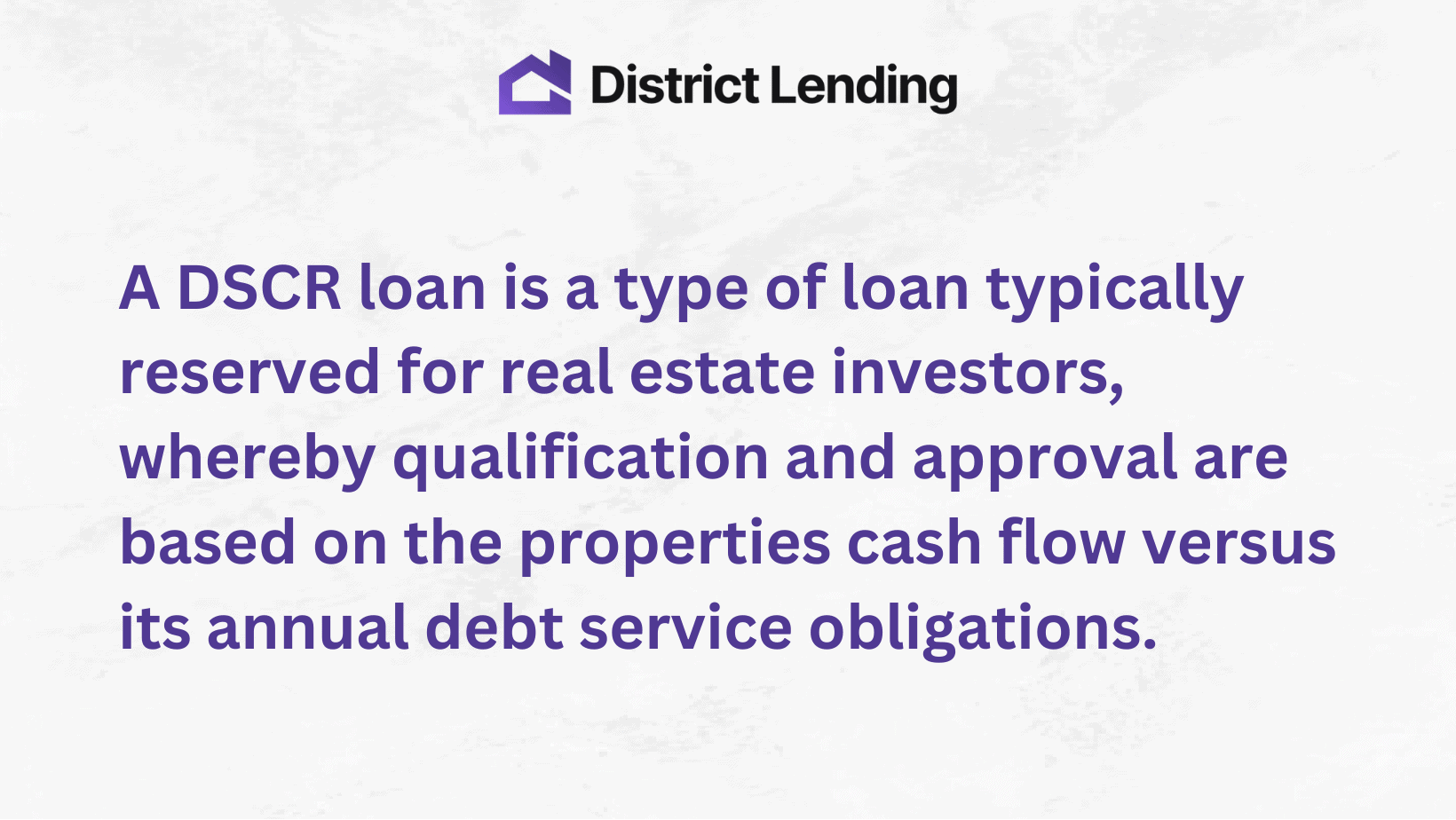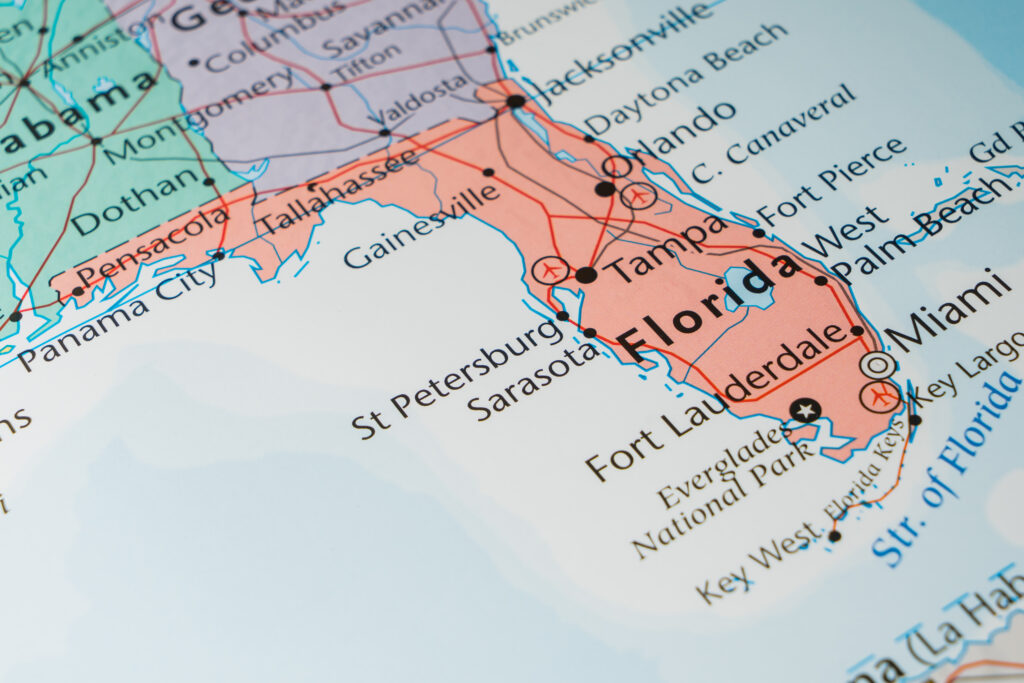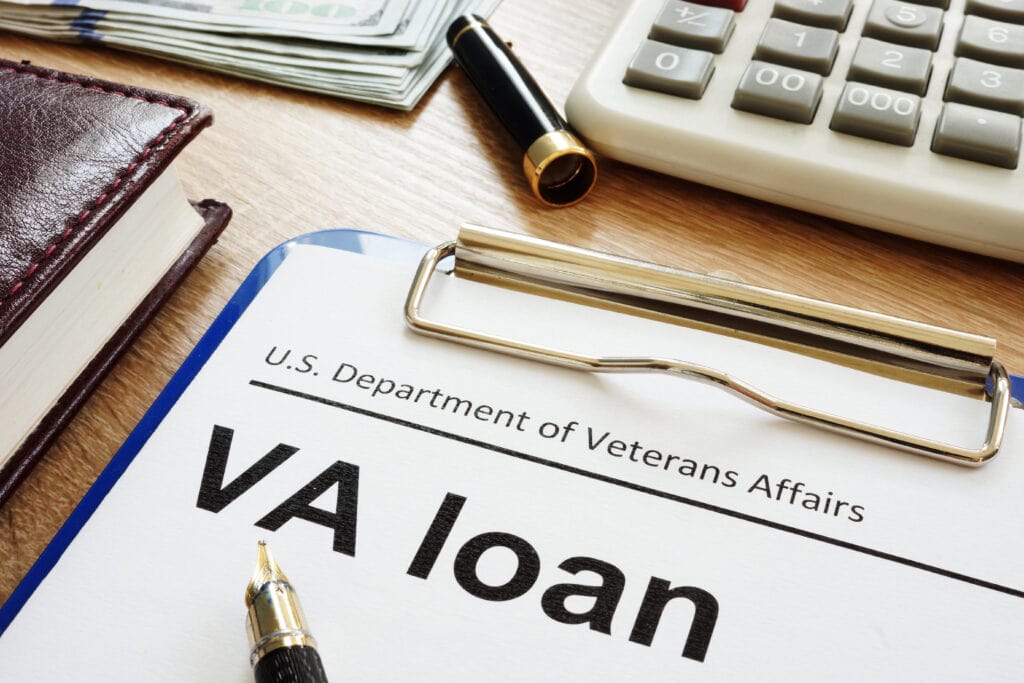If you’re a real estate investor in Florida and want a simpler way to qualify for a home loan without the hassle of traditional income checks like tax returns or pay stubs: enter DSCR loans Florida.
“DSCR” stands for Debt Service Coverage Ratio loans, and they focus on the income generated by the property itself, rather than your personal income.
This is a huge advantage, especially for Florida real estate investors.
Why?
Because DSCR loans streamline the loan qualification process for real estate investors by prioritizing property income over personal income, making it easier and more accessible for investors to secure financing for their real estate ventures.
DSCR loans evaluate your investment’s financial health based on the property’s cash flow, which avoids the usual income documentation requirements.
Okay, let’s explore how to qualify for a Florida DSCR loan this year.
Table of Contents
DSCR Loans Florida: What Are They?

In the state of Florida, obtaining a traditional home loan typically involves navigating a complex application process that includes submitting tax returns and pay stubs.
However, for investors, there’s an alternative route: DSCR loans.
DSCR loans fall under the category of non-Qualified Mortgage (non-QM) lending, bypassing many of the traditional mortgage application hurdles.
In the world of mortgages, “QM” or “Qualifying Mortgage” refers to the standard lending process that scrutinizes various factors, including your assets, employment status, debt-to-income ratio, credit history, and more.
DSCR loans provide a solution for investors who may not meet the stringent criteria of traditional mortgages.
These asset-based loans assess the potential of a real estate investment based on the property’s rental income in comparison to its debt obligations, rather than relying solely on the borrower’s personal financial status.
The key feature of DSCR loans is their emphasis on the property’s capacity to cover its own debt service obligations, encompassing mortgage payments, property taxes, insurance, and any related costs.
This is commonly referred to as the DSCR ratio and can be calculated using a straightforward mathematical equation.
How Do Florida DSCR Loans Work?
Florida DSCR loans operate by doing an analysis on the income generated by the property itself, rather than the borrower’s personal income.
These loans are particularly popular among real estate investors.
Here’s a breakdown of how they function:
Assessing Property Income: The primary factor in a DSCR loan is the property’s ability to generate income. Lenders examine the expected rental income the property will earn and compare it to the property’s debt obligations, which include the mortgage payment, property taxes, insurance, and any homeowners’ association fees.
Calculating the DSCR: The Debt Service Coverage Ratio is calculated by dividing the property’s annual Net Operating Income (NOI) by its annual mortgage debt service. NOI represents the annual income generated by the property minus its operating expenses. A DSCR of 1 signifies that the income precisely covers the debt service, but most lenders prefer a DSCR greater than 1, indicating that the property generates enough income to comfortably cover the mortgage and associated expenses.
Loan Approval Criteria: For a DSCR loan in Florida, lenders primarily focus on the DSCR value. A higher ratio increases the likelihood of loan approval. Unlike traditional loans, less emphasis is placed on the borrower’s personal income, employment history, or debt-to-income ratio.
Interest Rates and Terms: DSCR loans may come with different interest rates and terms compared to conventional mortgages. These terms can be influenced by factors such as the property type, loan-to-value ratio, borrower’s credit score, and the DSCR itself.
Property Types: DSCR loans in Florida can be used for various types of investment properties, including single-family homes, multi-family units, and commercial real estate.
Flexibility: These loans offer more flexibility for investors, especially those who might not qualify for traditional financing due to irregular income patterns or those looking to rapidly expand their real estate portfolios without the constraints of traditional mortgage qualifications.
Application Process: The application process for a DSCR loan typically requires less documentation regarding personal income. However, thorough documentation related to the property’s income potential and operating expenses is crucial.
In essence, Florida DSCR loans provide an alternative avenue to financing for real estate investors, with a focus on the income-producing potential of the property rather than the borrower’s personal financial situation.
This makes them an attractive option for investors who may possess substantial assets but experience fluctuating personal incomes, or for those aiming to expand their real estate holdings swiftly without the limitations of traditional mortgage criteria.
How to Calculate DSCR in Florida
The DSCR equation is a fundamental aspect of understanding Florida DSCR loans.
Here are some examples of how to calculate DSCR for Florida properties, with different ratios:
DSCR = (Rent / PITIA)
PITIA includes Principle, Interest, Taxes, Insurance, and Association Dues.
For commercial or multi-family properties in Florida, DSCR is calculated by dividing the annual Net Operating Income (NOI) by the Annual Debt Service.
For instance, if a property in Florida generates an NOI of $70,000 annually, and its annual debt service is $58,275, the equation is:
DSCR = ($70,000 / $58,275) = 1.20
In this example, the annual debt service is less than the Net Operating Income, resulting in positive monthly cash flow.
What’s a Strong DSCR Ratio in Florida?
A “strong” DSCR ratio in Florida is any number above 1.20.
Lenders typically seek a DSCR ratio above 1.20, indicating that the property is generating positive cash flow at a healthy profit.
Here’s how DSCR ratios translate:
- If your DSCR is greater than 1.00, you have positive cash flow at a profit.
- If your DSCR is less than 1.00, you have negative cash flow at a loss.
- If your DSCR equals 1.00, you break even and have neutral cash flow.
DSCR loans are commonly used for various property types within the Florida real estate market, with suitability depending on the income-generating potential and associated risk for each property type.
Property Types in Florida Eligible for DSCR Loans
Numerous property types in Florida qualify for DSCR loans, including:
- Multifamily Properties
- Commercial Properties
- Vacation Rentals, including Airbnb properties
- Mixed-Use Properties
- Single-Family Rentals
- Student Housing
- Assisted Living Facilities
- Mobile Home Parks
List of DSCR Loan Requirements Florida
The requirements for Florida DSCR loans can vary depending on the lender, loan type, and specific borrower circumstances.
However, certain common DSCR loan requirements that lenders typically consider include:
DSCR Ratio: Lenders often specify a minimum DSCR requirement, typically expressed as a ratio (e.g., 1.25:1 or 1.50:1), indicating that the property’s cash flow must be at least 1.25 or 1.50 times greater than the debt service (principal and interest payments).
Historical Cash Flow: Lenders may require borrowers to provide historical financial statements (usually the last two to three years) demonstrating the property’s ability to generate sufficient cash flow to cover debt obligations.
Future Projections: Borrowers might need to provide financial projections or a business plan showing that they can maintain the required DSCR throughout the loan term, based on realistic assumptions.
Property or Business Appraisal: For real estate-related DSCR loans, lenders often demand a professional appraisal to determine the property’s current market value and ensure it provides adequate collateral for the loan.
Creditworthiness: Lenders evaluate borrowers’ creditworthiness, considering factors like credit scores, financial history, and overall financial stability. A strong credit profile enhances the chances of loan approval.
Loan-to-Value (LTV) Ratio: In real estate lending, the LTV ratio, comparing the loan amount to the property’s appraised value, can be a factor. A lower LTV ratio reduces risk for the lender.
Debt Obligations: Lenders assess the borrower’s existing debt obligations, including outstanding loans and credit lines, to ensure they can take on additional debt without becoming overleveraged.
Loan Term: The length of the loan term can influence DSCR requirements, with longer-term loans potentially having lower DSCR thresholds.
Interest Rate: The interest rate can impact the DSCR, as higher rates increase debt service costs. Borrowers should be prepared for possible interest rate fluctuations during the loan term.
Documentation: Detailed financial documentation is typically required, including tax returns, bank statements, income statements, balance sheets, and other relevant financial records.
Property or Business Type: The type of property or business being financed can influence DSCR loan requirements, with some property types having stricter criteria due to perceived risk levels.
Guarantees: Lenders may require personal or corporate guarantees, especially for commercial loans, to provide an extra layer of assurance for loan repayment.
Borrowers should carefully review their lender’s specific DSCR loan requirements and ensure they meet all criteria before applying.
Additionally, working with a mortgage broker like District Lending can help prepare a strong loan application and meet the lender’s expectations.
What are the DSCR Loan Florida Pros and Cons?
DSCR loans in Florida have distinct advantages and disadvantages that are important to consider if you’re thinking about using them for real estate investments.
Pros of DSCR Loans in Florida:
Focus on Income Potential: DSCR loans evaluate the income-generating potential of the property, making them ideal for properties like multi-family residences and commercial spaces.
Versatility: These loans are adaptable for various property types, including urban commercial properties and vacation rentals.
Customizable Terms: DSCR loans often have flexible terms that can be tailored to your investment strategy.
Risk Mitigation: By focusing on the property’s income rather than the borrower’s creditworthiness, they can provide a safety net in varying economic conditions.
Local Expertise: Florida-based lenders specializing in DSCR loans have valuable insights into the local real estate market.
Faster Closing: The approval process for DSCR loans is typically quicker and more straightforward than traditional loans, as they rely on the property’s cash flow rather than your personal income or employment history.
Financing Multiple Properties: These loans allow the financing of multiple properties simultaneously, which can be beneficial for building a diversified real estate portfolio.
Flexibility for Different Property Types: DSCR loans are versatile for various investment opportunities, including vacation rentals and commercial spaces.
Suitable for Novice and Seasoned Investors: They cater to a broad range of investors, including those who might not meet conventional mortgage guidelines.
Cons of DSCR Loans in Florida:
Higher Interest Rates: Generally, DSCR loans generally come with higher interest rates compared to traditional mortgages.
Stringent Requirements: They often have stricter eligibility criteria, including higher credit scores and specific debt service coverage ratios.
Cash Reserve Requirements: Some lenders may require borrowers to have cash reserves, impacting your liquidity.
Property Cash Flow Risks: The reliance on property’s rental income can be risky if there are periods of vacancy or fluctuation.
Limited Owner-Occupancy Options: These loans are mainly for non-owner-occupied investment properties.
Market Sensitivity: The effectiveness of DSCR loans can be affected by market conditions.
Limited Loan Amount: Some lenders may impose limits on the amount you can borrow.
Higher Down Payment: Generally, a DSCR loan Florida down payment of 20% to 25% is required. However, this can vary depending on the lender.
Prepayment Penalties: Some lenders might impose prepayment penalties, though this is not universal.
District Lending Can Help You Get a DSCR Loan in Florida!
District Lending is a veteran-owned lender serving the great state of Florida with over 20 years of experience in handling DSCR loans for real estate investors.
We simplify the process and offer quick closings, handling the intricacies of DSCR loans on your behalf, so you don’t have to worry about the details.
Why Choose District Lending for Your Florida DSCR Loan?
Our team at District Lending will go the extra mile for you!
We shop around and compare different lenders to secure the best rate and experience for you.
Here’s just some of the reasons to consider a Florida DSCR loan with District Lending:
- Minimal Documentation: We require minimal documentation, with no personal debt-to-income calculations or tax returns needed.
- Rapid Closings: Experience ultra-fast closings on DSCR loans, sometimes within 14 days or less.
- Asset Protection: Utilize an LLC or other business entity for added protection.
- Multiple Mortgages: Real estate investors can secure more than 10 mortgages with DSCR loans.
- Income Coverage: Rental income must at least cover the debt to be eligible.
Seeking a Low Rate Florida DSCR Loan? We’ve Got You Covered!
If you have questions about DSCR loans in Florida, we have expert answers.
If you’re in search of a DSCR loan for an investment property in Florida and desire a quick, hassle-free closing, you can get in touch with us HERE to learn more and explore your options.
Click here to get a Florida DSCR loan rate in 60 seconds or less!
About the Author

Brian Reese is a senior advisor and co-owner at District Lending. He is one of the world’s leading experts in veteran benefits, having helped millions of veterans secure their financial future since 2013. Brian is the founder VA Claims Insider, an education-based Coaching & Consulting company whose mission is to educate and empower veterans to get the VA disability benefits they’ve earned for their honorable service. A former active-duty air force officer, Brian deployed to Afghanistan in support of Operation Enduring Freedom. He is a distinguished graduate of management of the United States Air Force Academy and earned his MBA as a National Honor Scholar from the Spears School of Business at Oklahoma State University.
“As a military veteran, I’ve made it my life’s mission to help people live happier and wealthier lives. District Lending brings this mission to life. We believe in integrity, honesty, and transparency, which is why you’ll see our rates right on our website. You’ll find lower rates and zero lending fees, which means you can buy your dream home for less. The savings are passed on to you — the way it should be.”
– Brian Reese, Advisor and Co-Owner, District Lending






